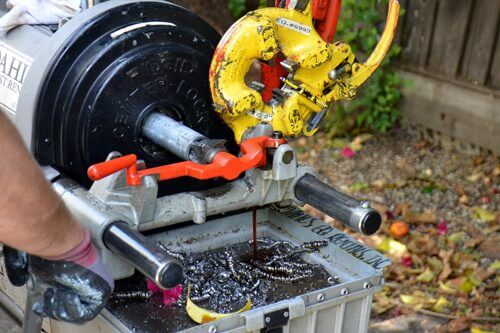
Back
Gas lines are an important part of many homes, providing fuel for appliances like stoves, furnaces, and water heaters. While natural gas is a safe and convenient source of energy, it's essential to understand how gas lines work and how to maintain them to ensure the safety of your home and family. In this blog, we'll cover the basics of gas lines in your home, from installation to maintenance.
Installation
When installing gas lines in your home, it's crucial to work with a licensed professional. Gas lines require specialized knowledge and tools to install properly, and improper installation can lead to gas leaks or other hazards. Your gas line installer will determine the best location for the gas line and ensure that it meets all local codes and regulations. They'll also install a gas shutoff valve near the gas meter, which allows you to turn off the gas supply in case of an emergency.
Maintenance
Regular maintenance is essential to ensure the safety and efficiency of your gas lines. Here are some tips for maintaining your gas lines:
- Schedule regular inspections: Have a licensed professional inspect your gas lines every year to ensure they're in good condition and free from leaks or damage.
- Check for signs of gas leaks: If you smell gas or notice a hissing sound near a gas appliance or gas line, leave your home immediately and call your gas company or emergency services.
- Keep gas appliances clean: Regularly clean your gas appliances to ensure they're working properly and free from dirt or debris that could cause malfunctions or gas leaks.
- Don't store items near gas lines or appliances: Keep flammable materials, such as paper, cloth, or gasoline, away from gas lines or appliances to reduce the risk of fire.
- Know how to shut off the gas supply: Make sure you know how to shut off the gas supply to your home in case of an emergency.
Repairs
If you suspect a gas leak or notice other issues with your gas lines, it's crucial to contact a licensed professional right away. Gas leaks can be dangerous and require immediate attention. Signs of a gas leak include a rotten egg smell, hissing or whistling sounds, and dead vegetation near a gas line. If you suspect a gas leak, evacuate your home immediately and call your gas company or emergency services.
In conclusion, gas lines are an important part of many homes and require regular maintenance to ensure their safety and efficiency. By working with a licensed professional for installation, scheduling regular inspections, and following basic safety guidelines, you can enjoy the convenience and benefits of natural gas in your home with peace of mind.
https://mcplumbing.com/blog/what-you-should-know-about-gas-lines/
No comments:
Post a Comment